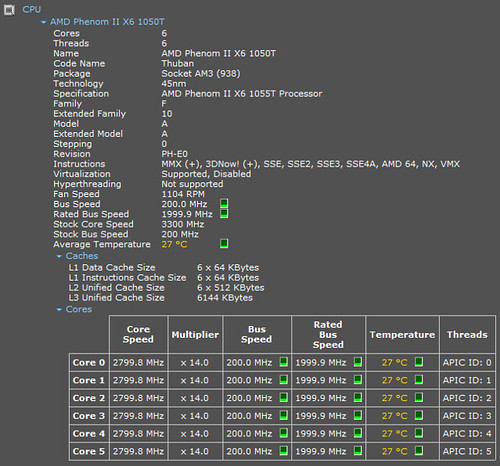Until recently, I've always bought prebuilts, so I stretched the life span of those out as far as I could. One even lasted me almost 8 years before I replaced it. Now, building my own, I'm making sure to buy high end enough parts so that I can make it at least 4-5 years which would make keeping the same Mobo pretty much pointless if I were to upgrade my CPU. I really feel like forward compatibility sockets/chipsets is more of a marketing gimmick to try to get people to buy new CPUs more often than they really need to.
It depends on perception. For starters I don't like playing the game of my use case being the superior use case. But lets look back in the last 10 years and see what in socket updates could have brought us.
AMD: Phenom X4, Phenom II, Phenom II X6, Bulldozer, PileDriver, Ryzen. So even if we could have gone through this whole chain the only real update would be to the X6 Phenom's, and while I applaud the early 6 real cores and 50% more compute power. It was in a time where even home VM usage was in it's infancy and the compute power as a whole was still rather low. But I am sure most guys who did upgrades to the X6 were thankful for the socket support. Obviously any of these guys going to Ryzen would have been a great upgrade. But some features like PCIe tech and DDR versions require new sockets now with on board memory controllers.
Intel: Core Duo, C2D, Nahelem, SB, IVB, HW, BW, SL, KL, CFL. I can't remember if the original CD platform could be upgraded to C2D but that would have been a substantial upgrade. But CD was mainly a mobile platform anyways. The upgrades if possible to from C2D to Nahelem to SB would have all been to lots of people worthwhile updates. But then it stopped. The cores stopped getting any faster. Core count stayed in place. Not till CFL was there a change, slight loss in clocks, 50% more compute power. The 50% more compute comes when AMD was already offering 80% more with Ryzen and after Intel had finally made their enthusiast platform more affordable and enticing by offering a lot more cores than the consumer platform had been offering before. Since Sandybridge there hasn't been a CPU that if it could be installed in the same board would really be worth opening up the system to toss it in. Even if you stop at Kabylake, there might have been enough clock speed to make it worth it but enough other tech change to make the need for a new socket make sense and a long enough window between the two, for people not to have given it a second thought that they needed a new board. On top of all of that is that people have been trained over this last 8 generations that by the time they might want to upgrade they would always have to get a new board.
I look at it like this. I haven't done a in place CPU upgrade on my main system since Socket A. I had/have a 3930k. I needed a decent 8 core CPU. If Intel had an upgrade for my 3930k even at $1000 for my system I would have gotten that. Instead I was looking at 1500, just swapping out the main components. For that same cost I got full 8 core Ryzen system (leaving me with my 3930k to continue using). Now looking ahead. I don't need a 12/16 core whatever Zen 2 ends up being CPU, but I can assure you if it only costs ~$300-$400 to gain another 50% more cores it will be nearly impossible for me to avoid getting an upgrade. Otherwise if I needed to swap out CPU, Mobo, maybe even memory. Then I would wait out the next period of time I required those resources.
So even though I have not or many people have not needed and therefore not find forward support in a socket that important. I think a lot of that is do to what kind of updates would have been available in the past. I also think that because of what will be available in the future with at least one platform I think people will be surprised at how many upgrades without a motherboard change will be done.



